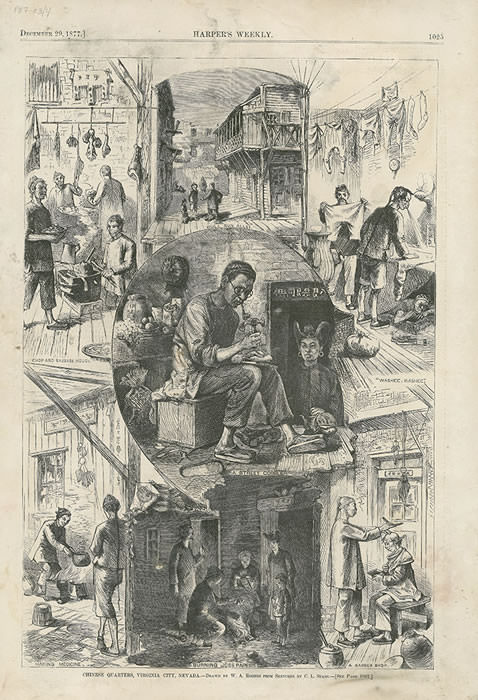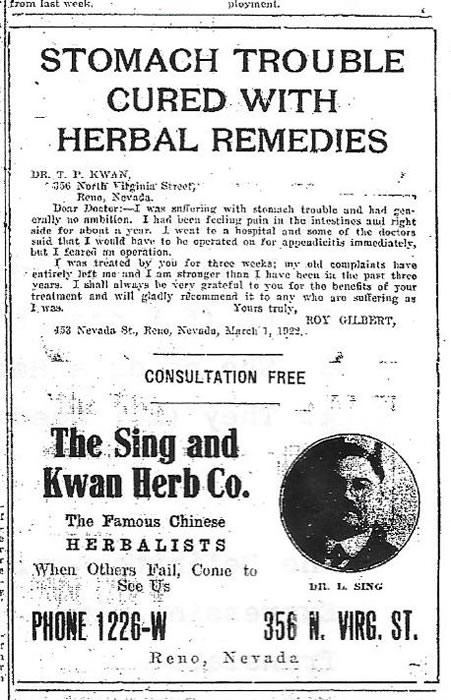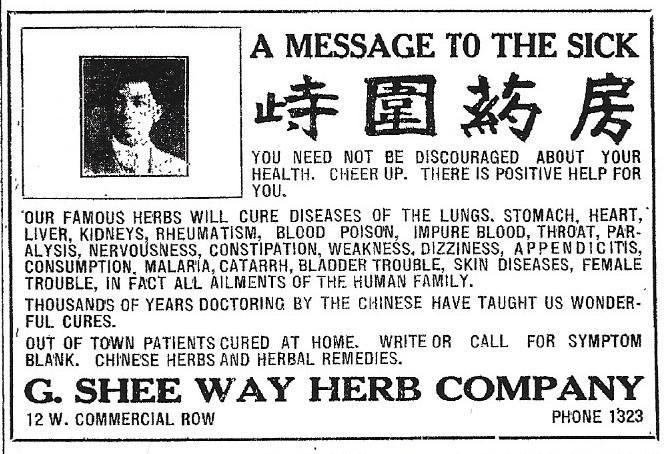edible traditions
ANCIENT CHINESE SECRET
Herbal medicine is a time-honored tradition in Reno.
WRITTEN BY SHARON HONIG-BEAR
PHOTOS COURTESY OF THE UNIVERSITY OF NEVADA, RENO SPECIAL COLLECTIONS
It’s easy to think of Chinese alternative medicine as something new and trendy, a hip-and-happening path to well-being. In reality, Reno and surrounding cities have a history of herbal shops that goes back 100 years to the Chinatowns of old.
Chinatown’s dark past
“Say what? A Chinatown in Reno?” you may ask. Yes, like many other towns throughout Nevada, Reno had a lively Chinese community at the turn of the 20th century. After the transcontinental railroad was completed in 1869, many Chinese stayed and established local enclaves. In Reno, Chinatown extended east from Virginia Street, along Front Street (now First Street) on the north bank of the Truckee River.
The first uniquely Chinese businesses revolved around intensive gardening, with three major areas growing fruits and vegetables that were sold to the public, and health was an important part of Reno’s Chinese businesses from the start.
But Chinatown also was known for less savory businesses, with opium dens, gambling, and prostitute cribs luring youths and adults alike. Discrimination was rampant, and local newspapers spread these views. An 1871 Nevada State Journal editorial stated, “For sanitary and other reasons, this class of our population should always be removed from the center of towns … Their unearthly noises and heathenish habits ill accord with the quiet that obtains among a civilized people and in Reno, especially, they are an unmitigated nuisance.”
The pervasiveness of these views led to an unannounced torching of the neighborhood one night in 1908. Reno’s Chinatown never was rebuilt, but many Chinese moved out to the surrounding downtown area, opening restaurants, shops, and rooming houses.

Herbal shops abound
By the beginning of the 20th century, Chinese herbal shops were common throughout Reno. An early one was the C. Shee Way Herb Co. at 12 Commercial Row. In frequent advertisements beginning in 1914, readers were asked “Are you sick — or discouraged about your health? Cheer up! There is help for you.” This typically was followed by a long list of ailments that the herbs could cure. Other ads soon followed for the Wai Sun Herb Co., May Ling Herb Co., and Sing and Kwan Herb Co. They drew their clients from the local Caucasian community, and ads often featured testimonials endorsing the herbal products.

Herbalist scandal
The path of the herbalists hit a major snag in 1941. The most prominent herbal doctor in Reno at the time was Dr. Q.S. Wong, who also served as the local head of the Chinese Nationalist Party. In August 1941, the district attorney charged Wong with manslaughter, stating that he had illegally treated Velma Valentine Webb of Oregon for epilepsy, practicing medicine without a license. Although released on $1,000 bail, Wong was ordered to close his business, as were four other Chinese herbalists, for reasons that are unclear. During his trial, Wong noted that he had helped 15,750 patients in his 30 years as an herbalist in Reno. Interestingly, there was no account of the trial’s outcome in the local newspapers, but the herbal shops, including Wong’s, reopened soon after, which is evident from a Nevada State Journal ad that ran on Dec. 25, 1943, which read, “Season’s Greetings to all Americans in the good old-fashioned spirit of the occasion.” He remained in business until early 1945 and died later that year while with family in Sacramento.
As times changed, so did recognition of the Chinese healing arts. Fast forward to 1973 when the Nevada Legislature approved a bill allowing for the practice of acupuncture. And in a final touch of irony, an ad in 1975 in the Reno Evening Gazette touted that people could have younger-looking skin with “Chinese Gingseng Crème.” From vegetable gardens to herbal shops to cosmetics, the Chinese brought an imprint of health and wellness to Reno and the surrounding area.
Sharon Honig-Bear was the longtime restaurant writer for the Reno Gazette-Journal. She is a tour leader with the Historic Reno Preservation Society and founder of the annual Reno Harvest of Homes Tour.


